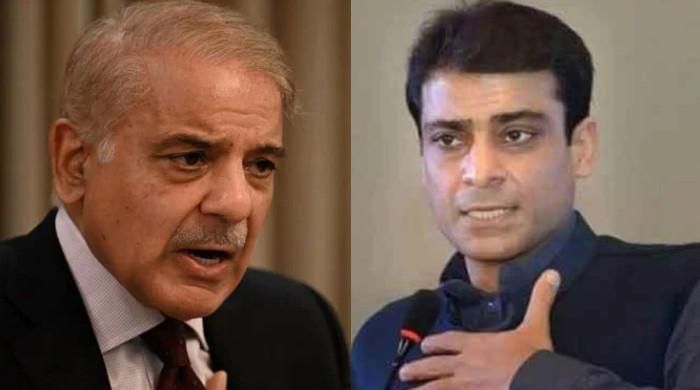- Reference inadmissible after Supreme Court verdict, lawyers say.
- The defense attorneys asked to file a request for transfer of reference.
- Imran seeks acquittal in £190m case under NAB amendments.
ISLAMABAD: After PTI founder Imran Khan was jailed and sought relief under the amendments to the National Accountability Ordinance 1999 recently restored by the Supreme Court, Prime Minister Shehbaz Sharif and his son Hamza Shehbaz demanded the retransfer of the reference of Ramazan Sugar Mills to the National Accountability Bureau (NAB).
The Supreme Court on September 6 accepted intrajudicial appeals filed against the majority judgment of September 15, 2023, which struck down amendments to the National Accountability Ordinance.
Approving the intrajudicial appeals filed by the federal and provincial governments, the apex court said Imran could not prove that the NAB amendments were unconstitutional.
During today's hearing, the father-son duo's lawyer argued that the reference against their clients is “inadmissible” after the Supreme Court verdict and that the “accountability court lacks jurisdiction to proceed in the case.” Responding to the argument, the judge asked the lawyers to file an application for transfer of the sugar mills' reference to the anti-graft body. The court added that the hearing on the application will be held on October 1.
Meanwhile, it also accepted Hamza Shehbaz's request to be exempted from appearing in person.
On February 18, 2019, the anti-corruption crusader filed a reference against Hamza and Shehbaz, alleging that the former Punjab chief minister had misused his authority to construct a 10-km slurry conveyor in Chiniot district to facilitate Ramzan Sugar Mills owned by his sons.
The anti-corruption bureau had alleged that the “project” had caused a loss of Rs 213 crore to the national exchequer.
The reference was reopened in November 2023 after amendments introduced by the Pakistan Democratic Movement (PDM) coalition government were rejected.
Earlier, Imran had also sought acquittal in the £190 million case under the NAB amendments, which he had challenged.
The ousted prime minister's lawyer told the accountability court at Adiala Jail in Rawalpindi that the case was no longer valid after the verdict as all cabinet decisions are protected in the NAB amendments.
NAB Amendments
The amendments restrict NAB from investigating any corruption case worth less than Rs 500 crore, while limiting the watchdog's powers to investigate a fraud case unless its victims are more than 100.
It also amended the NAB Act to keep an accused in its custody for a maximum of 14 days, a period which was later increased to 30 days.
The amendments also barred the anti-corruption watchdog from taking action on matters relating to federal, provincial or local taxes.
In addition, regulatory agencies operating in the country have been removed from the purview of NAB under the amendments, while pending enquiries, investigations and trials against individuals or financial matters have been transferred to relevant institutions and courts.
Among the changes introduced in the law is the reduction of the four-year tenure of the NAB chairman and the NAB attorney general to three years. In addition, a three-year tenure is also provided for judges of accountability courts and the courts must dispose of cases within one year.












